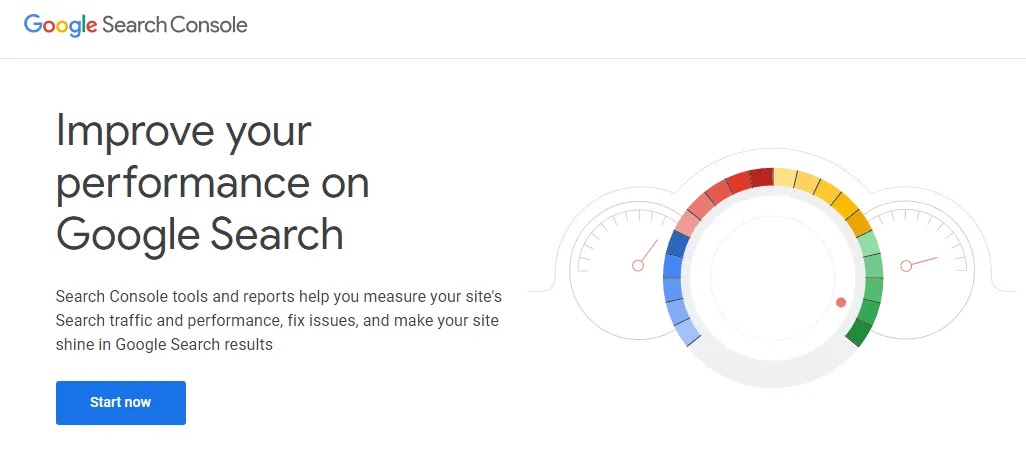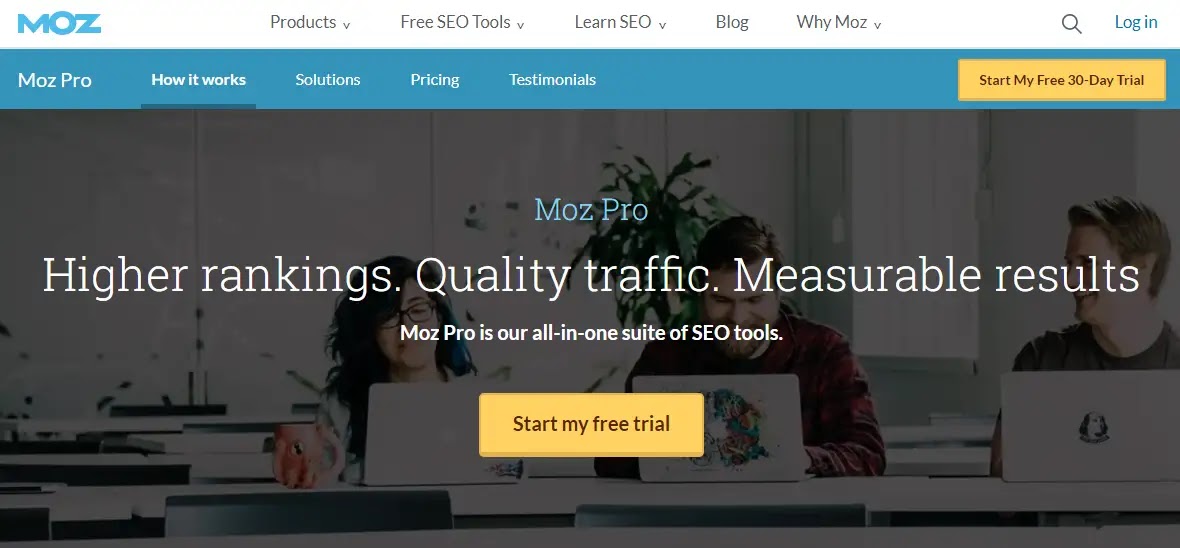 |
| Credit: Pexels |
SEO tools improve the ranking of your website in search engine results by providing alerts and data showing its success and overall health. Through SEO tools, you can optimize the content of your websites by using backlinks, keywords, site speed, WordPress, rank checking, and analytics. These tools also investigate your web page’s ability to come top on the search engine ranking pages, such as Google. SEO tools will help you identify growth opportunities and expose weaknesses that could hinder your website the visibility of your website in the Search Engine Results Pages (SERPs).
Adopting SEO tools or involving an SEO firm will help you determine what is working and what needs tweaking. Best SEO tools will also give you reports on your comparison to the competition, thus helping you see where opportunities lie. If you have two or more websites, SEO tools can simultaneously assess their performance at go. We will dive into the best SEO tools available for you.
Related Article: What Is SEO and How Does it Work?
1. SEMrush
 |
| Credit: SEMrush |
This SEO tool can provide you with a detailed keyword report and a summary of your managing domain. SEMrush toolkit enables you to compare your pages' performance against the competition using backlinks from other websites. Through SEMrush you are able to determine competitors' major sources of traffic, empowering you to know in fine detail the competition’s bounce rate and session duration. By analyzing competitors' domains, you will identify their targeted keywords for mobile and desktop devices.
Pros:
- It has a large and expanding keyword database, covering many countries.
- It has a detailed website Auditing Tool that diagnoses all weak points that need attention for better website health.
- SEMrush also has an efficient content marketing tool with various topic ideas.
Cons:
- Its topic recommendations are sometimes a miss and hit, pulling unrelated keywords and FAQs.
- Occasionally, it experiences a mismatch between results from its quick summary using backlink analytics and its detailed backlink audit; therefore, it is important to check both data before giving your final thought.
2. Ahrefs
 |
| Credit: Ahrefs |
Ahrefs is one of the most popular SEO tools online. It comes second after Google as the largest web crawler. Most SEO experts recommend Ahrefs for its Site Audit feature because it has the best tool analysis. With Ahrefs, you will establish which areas of your website need tweaking to improve its ranking in search engines. Additionally, this tool provides detailed competitors backlinks that you could use for building your brand. Ahrefs can also be utilized in identifying the most linked-related content, checking any broken links on your website, and fixing them. It is also good with rank tracking, keyword research, SEO audit, competitor research, and viral content research.
Pros:
- It provides detailed keyword searches using CPC and volume searches.
- It has important SEO features, including rank tracking, website audit, competitor research, content, and keyword research.
- It delivers complete information and performance analysis for better optimization.
Cons:
- It is challenging to use if you are new to SEO tools initially. This is because it has a steep learning curve, making it difficult to grasp at first.
- It does not have a content optimization solution, an important feature in other SEO tools.
3. Google Search Console
 |
| Credit: Google Search Console |
Google search console is a free tool for everybody having a website to monitor and report their web presence in Google SERP. This SEO tool requires verifying your website through codes or using Google Analytics by submitting your sitemap for indexing. Since Google is the biggest search engine, its Search Console can better understand how your website ranks on the search engine and how Google user views your website. This information is essential in optimizing your content for improved performance in Google search results. Google Console is an excellent tool for beginners or new websites, as the owners can submit their web pages for indexing.
Pros:
- It allows you to visualize the Terms of Search Engines.
- It can sort your keywords based on pages and times.
Cons:
- Google Search Console does not directly indicate how a site can make improvements.
- It doesn't have rating terms, meaning you can not rate it even if you want.
4. KWFinder
SEO experts with a keen eye on long-tail keywords with lower difficulty levels prefer KWFinder. This tool can help you identify the best keywords and perform an analysis report via SERP and backlinks. It has a Rank Tracker tool that you can use to know your ranking and follow improvements using one key metric. It also provides you with several new keyword ideas to enhance your ranking with the changing trends. With KWFinder, you get the keywords you are looking for and suggest related terms plus their competition. Another feature of this SEO tool is that it has no lag time, providing faster results.
Pros:
- It is easy to use, making finding keywords easier. Beginners can benefit from this tool since it does not need the expertise to operate.
- It has wide optimization metrics by pulling data from majestic Moz and other tools in addition to its strong link profile.
- It provides multiple logins, meaning your team can also use it as long as you have an agency plan or premium account.
- You do not need any app installation because it is web-based.
Cons:
- It does not have a multi-tabbed keyword search.
- Its SERPChecker cannot be customized to fit your specific needs.
- It has limited keyword search results.
5. Moz Pro
 |
| Credit: Moz Pro |
Moz Pro is an SEO tool designed to improve your website traffic, visibility, and ranking across various search engine results. It has a Moz Pro spider feature, which you can use to audit your website, highlighting potential problems and needed actions to correct these issues. This tool also tracks the ranking of your site, using hundreds of keywords for every website. Additionally, its keyword tool can generate keywords and combinations that can be used for targeting. Its backlink analysis tool blends various metrics, such as anchor text links and domain authority.
Pros:
- Apart from its great custom metrics, such as Domain Authority, it has a relatively fast web crawling speed.
- It is cheaper than many enterprise solutions.
- It provides a wonderful support team and offers several free resources during SEO training.
Cons:
- It does not have perfect customization on reporting, with many error messages when utilizing some site features.
- Some reports are unavailable for a week or more after you have loaded up keywords.
- The navigation structure is not that good, making it difficult to find what you are looking for.
6. Ubbersuggest
This SEO tool is one of the best free tools in the market that help you determine keywords and know why top-ranking SERPs present these keywords. This tool combines long and short-tail phrases to provide you with the right terms for your website and several keyword suggestions. Ubbersugest gives you keyword competition, volume, seasonal trends, and CPC, helping you determine if the targeted keyword is worth your time and its competitiveness.
Pros:
- It is a free tool with no limitation on keyword search like other tools, meaning you can use it as much as possible.
- It provides you with many new keyword ideas that you can implement to optimize your web content.
- It has simplified metrics, providing you with quick results.
- It is user-friendly, giving you value without hassles.
Cons:
- It has limitations with the targeted markets since it is challenging to find keywords for a specific niche market.
- It is not supported by any mobile app, and its mobile layout is a little lacking on the website.
Related Article: Important SEO Tips to Boost Traffic to your Website.
7. SpyFu
It has many free features that are great for beginners before they graduate to paid features. It lets you know the number of times keyword searches monthly while also showing ranking difficulty. SpyFu also allows you to research the keywords your competitors are using, helping you establish how to imitate them. This tool is good for studying the competition, enabling you to know the organic keywords they use, monthly clicks, and their Google Ads campaigns.
Pros:
- It helps your company determine appropriate keywords for campaigns.
- It provides you with competitors' keywords.
Cons:
- It is not easy to choose the correct keyword search.
- Their email advertising can be annoying.
8. Siteliner
This SEO tool is designed to help in finding duplicate content published on your website. Duplicate content is identical material on other websites, and Google penalizes companies for it. Siteliner will help you scan your website for broken links, duplicate content, speed, and page size. Additionally, it also compares your site's performance with other websites ran through the tool to better understand your position.
Pros:
- It provides you faster results for your searches.
- The normal version is free, allowing you to scan 250 pages, suitable for small blogs.
- It scans for broken links and duplicate content at go.
- With Siteliner, you can download your reports in various formats, such as CSV, PDF, and Excel sheets.
Cons:
- You can only do scans on your website.
- It does not indicate how the website compares with other metrics like loading times and page speed to the average.
- It does not provide you with direct competitor comparisons.
- It does not show you how to improve your loading times and page speed.
9. FatRank
 |
| Credit: FatRank |
The FatRank SEO tool is available as a Chrome extension rank checker. This SEO tool gauges your site's performance by helping you know keyword rankings. It allows you to add keywords to the search and establish how it ranks per page for optimization.
Pros:
- It is free of cost.
- Its accuracy is higher than in some tools.
- There is a low chance your IP will be getting a Google blacklist.
- This tool provides unlimited keywords for websites that help users outrank their competitors.
Cons:
- The tool only allows you to check one keyword at a time.
- The tool does not allow you to save the previous keyword data.
10. Screaming Frog
Experts regard it as one of the best SEO tools in the market. It helps save your time by analyzing your website at an extraordinary speed while performing a site audit. Experts agree that Screaming Frog enables you to get insight into your web ranking quicker than several online SEO tools. Additionally, it gives you insight into duplicate content, bad redirections, errors to fix, and areas of improvement for link building.
Pros:
- It helps you check your URL status codes.
- It can also allow you to find canonical Links.
- It can generate XML sitemaps of websites by making proper advanced configurations over URLs.
Cons:
- It takes longer to customize its web crawler.
- The web crawler cannot analyze large sites.
- It has limited options for the free version.
Related Article: Best SEO Keyword Research Tools for Your Business.
Conclusion
Operating an optimized website will improve your traffic, visibility, and ranking. However, you need a qualified SEO firm with better tools to optimize your web content for search engine results to attain better results. We have so far discussed the ten best SEO tools that you can use to improve your company's bottom line, but sure there are more than the mentioned SEO tools that we will talk about later.
Finally, I would like to know your experiences with this blog post in the comments section below. If you find this article useful for you, you can share it on social networking sites, and you can follow us to get the latest blog posts and be the first to know about them, and also you can suggest any new topics you want us to talk about.
